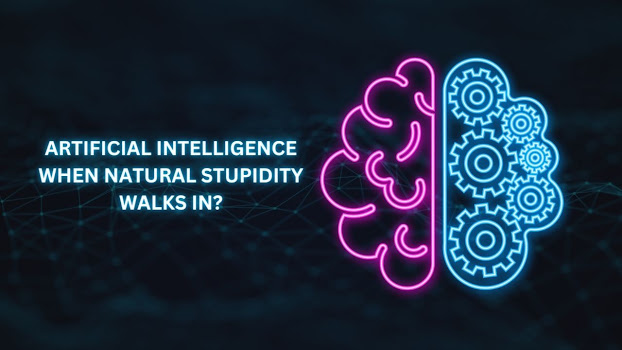In today's rapidly evolving technological landscape, artificial intelligence (AI) has emerged as a game-changer, revolutionizing industries and transforming the way we live and work. However, despite its remarkable capabilities, AI is not without its limitations. This article explores the intersection of artificial intelligence and human error, delving into the challenges and implications of relying too heavily on AI in various aspects of our lives.
1. The Rise of Artificial Intelligence:
- Artificial intelligence refers to the simulation of human intelligence processes by machines, primarily computer systems.
- AI technologies such as machine learning, natural language processing, and computer vision have enabled significant advancements in fields like healthcare, finance, transportation, and more.
2. The Promise of AI:
- AI offers the potential to automate tedious tasks, streamline processes, and make data-driven decisions faster and more accurately than humans.
- In healthcare, AI-powered diagnostic tools can analyze medical images and patient data to assist healthcare professionals in diagnosing diseases and developing treatment plans.
- In finance, AI algorithms can analyze vast amounts of financial data to detect patterns and trends, helping investors make informed decisions and mitigate risks.
3. The Pitfalls of Overreliance on AI:
- Despite its capabilities, AI is not infallible and can be susceptible to errors and biases.
- One major concern is the "black box" problem, where AI algorithms make decisions that are difficult to interpret or explain, raising questions about transparency and accountability.
- Overreliance on AI in critical decision-making processes, such as autonomous vehicles or predictive policing, can lead to unintended consequences and ethical dilemmas.
- In some cases, AI systems may perpetuate or even exacerbate existing biases present in the data they are trained on, resulting in unfair or discriminatory outcomes.
4. Finding the Balance:
- While AI has the potential to augment human capabilities and improve efficiency, it is essential to recognize its limitations and mitigate the risks associated with its use.
- Human oversight and intervention are crucial in ensuring that AI systems operate ethically and responsibly.
- Incorporating diverse perspectives and interdisciplinary approaches in AI development can help mitigate biases and promote fairness and inclusivity.
- Education and awareness about AI technologies and their implications are essential for fostering informed discussions and decision-making about their use.
5. Summary: In conclusion, artificial intelligence holds tremendous promise for addressing complex challenges and driving innovation across various industries. However, it is essential to approach AI development and deployment with caution and awareness of its limitations. By finding the balance between harnessing the power of AI and preserving human judgment and ethics, we can unlock its full potential while minimizing the risks associated with its use.
FAQs:
What is artificial intelligence?
- Artificial intelligence refers to the simulation of human intelligence processes by machines, primarily computer systems.
- For more information, visit Wikipedia - Artificial Intelligence.
What are the potential applications of AI?
- AI technologies have applications across various industries, including healthcare, finance, transportation, and more.
- For more information, visit Wikipedia - Applications of Artificial Intelligence.
What are the risks associated with overreliance on AI?
- Overreliance on AI can lead to errors, biases, and unintended consequences in decision-making processes.
- For more information, visit Wikipedia - Ethics of Artificial Intelligence.
Conclusion: Artificial intelligence has the potential to revolutionize the world as we know it, but it is essential to approach its development and deployment with caution and mindfulness. By acknowledging the limitations of AI and fostering a culture of responsibility and ethical stewardship, we can ensure that artificial intelligence serves humanity's best interests and contributes to a more equitable and prosperous future.

Comments
Post a Comment